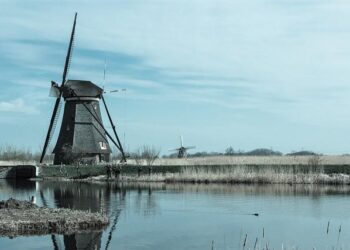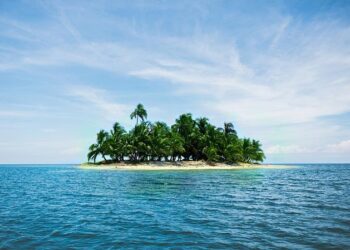India and the Netherlands Unveil a Green Maritime Corridor Initiative
In a significant stride towards eco-friendly maritime operations, India and the Netherlands have announced their collaborative effort to establish an innovative green maritime corridor. This pioneering initiative is designed to reduce the environmental footprint of shipping activities, showcasing both nations’ commitment to sustainability and forward-thinking practices in the maritime sector. As shipping contributes notably to global greenhouse gas emissions, this green corridor is expected to enhance cooperation and technological exchange, encouraging the adoption of renewable energy sources and strategies for emission reduction. With stakeholders from both countries preparing for this ambitious project, it promises not only to revolutionize maritime logistics but also set a benchmark for global sustainability.
Collaboration for Sustainable Maritime Solutions
The alliance between India and the Netherlands represents a crucial advancement in reshaping the maritime industry through sustainable innovations. Both nations recognize the pressing need to address environmental challenges linked with shipping operations,committing themselves to create an eco-friendly maritime corridor. This initiative aims not only at reducing carbon emissions but also at enhancing overall efficiency in shipping routes. The key objectives include:
- Advancement of Eco-Conscious Technologies: Funding research that promotes clean fuels and energy-efficient vessels.
- Alignment of Regulations: Developing cohesive policies that support sustainable practices.
- Keen Knowledge Exchange: Leveraging expertise from both countries to foster innovation in marine sustainability.
- Infrastructure Development: Upgrading ports for accommodating environmentally friendly shipping methods.
This partnership has been solidified through a memorandum of understanding (MoU), reflecting both governments’ strong dedication toward collaborative efforts. The initiative will also focus on training programs aimed at equipping workers with skills relevant in an evolving landscape increasingly centered on sustainability. To illustrate their shared vision, key focus areas are outlined below:
| Focus Area | Contribution from India | Contribution from Netherlands |
|---|---|---|
| Research & Development | Largescale renewable resource initiatives | Pioneering shipping technologies |
Implementing Strategies for the Green Maritime Corridor Initiative
The effective realization of the Green Maritime Corridor Initiative relies heavily on robust collaboration among nations as well as industries involved. Strong public-private partnerships will optimize resource utilization while driving technological advancements aimed at minimizing emissions within marine operations. Industry participants are encouraged to engage actively in knowledge sharing where best practices can be exchanged freely among peers.
The facilitation of joint research projects involving universities alongside marine enterprises from both India and the Netherlands will be essential in crafting sustainable solutions tailored specifically for regional challenges.
Additonally, establishing clear regulatory frameworks will guide transitions toward environmentally friendly practices within maritime sectors by incorporating incentives designed around adopting green technologies while enforcing strict environmental standards applicable across all vessels engaged in trade activities.
Investment into infrastructure upgrades at ports supporting renewable energy utilization can further fortify this initiative’s foundation.
Highlighting training programs focused on crew members‚Äô operational staff regarding sustainable methodologies ensures workforce readiness amidst these transformative changes‚ÄĒultimately leading towards smoother transitions into greener operational standards.
Future Prospects & Recommendations for Enhancing Maritime Sustainability
The journey undertaken by India alongside its Dutch counterpart marks just one chapter; future steps must prioritize integrating cutting-edge technologies capable enough significantly reduce carbon footprints throughout various facets concerning sea transport operations.
Key focal points warrant consideration when enhancing overall sustainability include:
- Sustainable Energy Investments: Encouraging wind power along with solar or wave-based solutions onboard ships;
- Pursuing Hybrid/Electric Vessels Implementation: Transitioning fleets equipped hybrid propulsion systems minimizing harmful emissions;
- Port Infrastructure Improvements: Upgrading facilities ensuring waste management protocols coupled efficient operation models supporting eco-friendly initiatives ;
- Stakeholder Collaboration :  ; Engaging government entities industry leaders academic institutions sharing insights developing synergistic projects .
A continued emphasis placed upon regulatory frameworks coupled incentives remains vital driving investments embracing greener alternatives .Crafting supportive policy environments facilitates smoother transitions fostering cleaner operational methodologies via :
- Emission Target Establishment :  ; Setting measurable benchmarks aligning global climate agreements.
- Financial Incentives Offering :  ; Providing subsidies tax breaks companies investing eco-conscious technology .
- Research Development Encouragement :  ; Supporting initiatives focusing new advancements related sustainable marine tech .
- International Cooperation Fostering :  ; Collaborating globally share knowledge resources promote best practice adoption across borders .
Final Thoughts & Insights
As India collaborates closely with its Dutch partner embarking upon creating this revolutionary green corridor , they exemplify unwavering commitments towards advancing development principles rooted firmly within ecological stewardship surrounding oceanic trade routes .This alliance not only seeks diminish harmful carbon outputs but together nurtures innovation collaboration centered around emerging clean technologies paving pathways forward potential future endeavors targeting enhanced international cooperation addressing pressing climate change challenges faced worldwide today.
Stakeholders policymakers alike remain keenly observant how these developments unfold ,recognizing implications extend far beyond shores either nation involved ‚ÄĒ ultimately shaping brighter more responsible futures ahead our planet‚Äôs vital waterways!
















